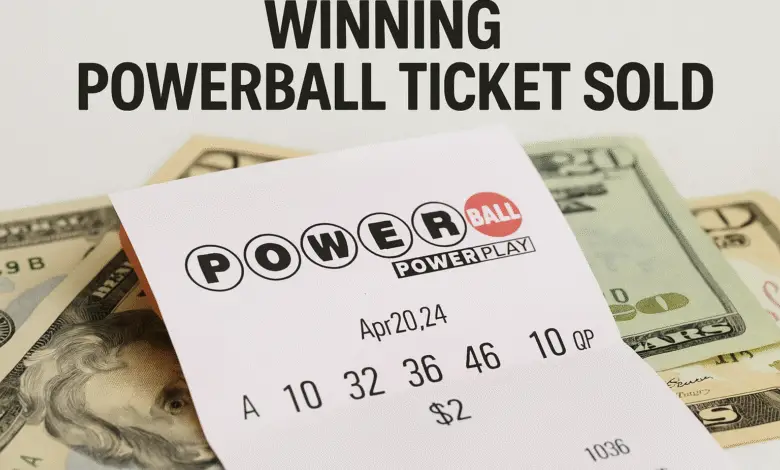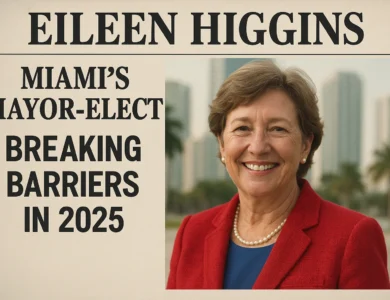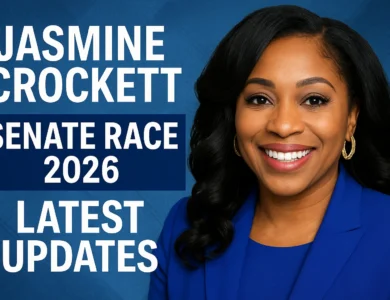
The excitement surrounding massive lottery jackpots always leads to one burning question: where was the winning Powerball ticket sold, and will we ever discover the identity of the lucky winner? With recent Powerball jackpots reaching astronomical heights, millions of Americans eagerly await news about winning ticket locations and winner revelations.
The winning Powerball jackpot ticket represents life-changing fortune, but the mystery surrounding the winner’s identity often captivates the public as much as the prize amount itself. Understanding where winning tickets are purchased and whether winners remain anonymous provides crucial insights into America’s lottery landscape and the complex web of state regulations governing prize disclosure.
Recent Powerball Jackpot Winner Locations Missouri and Texas Take the Prize
The most recent major Powerball drawing made headlines when winning tickets for the nearly $1.8 billion Powerball jackpot were sold in Missouri and Texas. This massive jackpot, with an estimated cash value of $820.6 million, created two instant multi-millionaires who will split the historic prize.
Texas Winner Location Details
One of the winning tickets was sold in Fredericksburg, about 68 miles north of San Antonio, after a winner purchased the ticket from a gas station along Highway 290. This small Texas town, known for its German heritage and peach orchards, suddenly found itself in the national spotlight as home to one of the biggest lottery winners in American history.
Missouri Winner Information
The winning Powerball ticket sold County was in St. Louis County, marking the 32nd time a Missouri ticket has won a Powerball jackpot prize. Missouri has consistently been a lucky state for Powerball players, demonstrating that winning tickets can emerge from anywhere within participating lottery states.
Where Winning Powerball Tickets Are Sold: Statistical Analysis
The question of where was winning Powerball ticket was sold extends beyond individual drawings to broader patterns across the United States. Powerball tickets are sold in 45 states, plus Washington D.C., Puerto Rico, and the U.S. Virgin Islands, creating countless opportunities for life-changing wins.
Geographic Distribution of Winners
Lottery statistics reveal that winning Powerball jackpot ticket locations often correlate with population density and ticket sales volume. States with larger populations naturally see more winners due to higher ticket purchase rates. However, smaller states occasionally produce winners, proving that lottery luck doesn’t discriminate based on state size.
Retailer Impact and Commission Structure
When retailers discover they sold the winning Powerball ticket sold at their location, they typically receive substantial bonuses from state lottery commissions. These bonuses range from $50,000 to $1 million, depending on the jackpot size and state regulations. Gas stations, convenience stores, and grocery stores represent the most common retail locations where winning tickets are purchased.
Will We Know Who Won? State-by-State Winner Privacy Laws
The question “will we know who won?” depends entirely on where the winning Powerball jackpot ticket was purchased. State laws vary dramatically regarding lottery winner anonymity, creating a complex patchwork of disclosure requirements across America.
States Allowing Complete Anonymity
Seven states allow lottery winners to maintain their anonymity: Delaware, Kansas, Maryland, North Dakota, Texas, Ohio, and South Carolina. In these states, winners can claim their prizes without public disclosure of their identities, providing crucial privacy protection for those who prefer to avoid publicity.
States Requiring Full Disclosure
Conversely, many states mandate complete transparency regarding lottery winner identities. Names and hometowns are made public if you win in New York, South Dakota, Vermont, and Wisconsin. These disclosure requirements aim to maintain lottery integrity and public trust in the system.
Trust Formation Options
Six states also allow people to form a trust to claim prize money anonymously. This legal mechanism enables winners in certain states to maintain privacy while still claiming their prizes legally. Trust formation requires legal expertise but provides an additional layer of protection for those seeking anonymity.
The Mystery Behind Winner Identity: Why Some Winners Stay Hidden
When investigating where was winning Powerball ticket was sold, the follow-up question about the winner’s identity becomes equally compelling. Several factors influence whether winners choose to reveal themselves publicly, even in states where anonymity is permitted.
Security Concerns
Many lottery winners choose anonymity due to legitimate security concerns. Sudden wealth can attract unwanted attention, including solicitation requests, investment scams, and even personal safety threats. The winning Powerball jackpot ticket holders often prioritize family safety over public recognition.
Financial Privacy Benefits
Maintaining anonymity allows winners to manage their newfound wealth privately, consulting with financial advisors and attorneys without public scrutiny. This privacy enables better long-term financial planning and wealth preservation strategies.
Social Relationship Preservation
Public disclosure can strain personal relationships, as friends and family members may suddenly view winners differently. Anonymous winners can maintain normal social relationships without the complications that accompany public knowledge of their lottery success.
How Winning Locations Are Determined and Announced
State lottery commissions follow specific procedures when announcing where was winning Powerball ticket was sold. Understanding these processes provides insight into how winner locations become public knowledge.
Ticket Validation Process
When someone presents a potential winning ticket, lottery officials must verify its authenticity through sophisticated security measures. This validation process confirms not only the ticket’s legitimacy but also its purchase location and timestamp.
Retailer Notification
Once ticket validation is complete, lottery officials contact the retailer where the winning Powerball ticket was sold to inform them of their bonus eligibility. Retailers often learn about their winning ticket sales through official lottery channels before winners come forward to claim prizes.
Public Announcement Timeline
Most states announce winning ticket locations within 24-48 hours of drawing results. However, winner identity disclosure follows different timelines based on state laws and when winners actually claim their prizes.
Economic Impact on Communities Where Winning Tickets Are Sold
The economic effects of having the winning Powerball jackpot ticket sold within a community extend far beyond the individual winner. Local economies often experience both immediate and long-term benefits from the lottery winners’ presence.
Tourism and Media Attention
Communities where major winning tickets are sold often experience temporary tourism boosts as people visit the “lucky” location. Local businesses, particularly the retailer that sold the winning ticket, may see increased foot traffic and sales.
Local Spending Patterns
Winners who remain in their communities often contribute significantly to local economies through increased spending on real estate, services, and charitable donations. This local economic injection can provide lasting benefits for small communities.
Retailer Business Growth
Stores that sell winning Powerball tickets sold frequently report sustained increases in lottery ticket sales, as players believe certain locations are “luckier” than others. While lottery draws are random, this psychological effect creates real business benefits for winning retailers.
Historical Patterns Where Major Powerball Jackpots Have Been Won
Examining historical data about where winning Powerball tickets were sold for major jackpots reveals interesting patterns and trends across different states and regions.
Top Winning States
California, Florida, and Texas historically produce the most Powerball winners, primarily due to their large populations and high ticket sales volumes. However, smaller states like Delaware and Rhode Island have produced proportionally impressive numbers of winners relative to their populations.
Urban vs. Rural Winner Locations
While urban areas generate more winners due to population density, rural locations occasionally produce major winners, demonstrating that the winning Powerball jackpot ticket can emerge from anywhere tickets are sold legally.
Seasonal Patterns
Lottery officials have noted slight seasonal variations in where winning tickets are purchased, often correlating with travel patterns during holidays and vacation seasons when people buy tickets outside their home states.
The Technology Behind Tracking Winning Ticket Locations
Modern lottery systems employ sophisticated technology to instantly identify where was winning Powerball ticket was sold after each drawing. Understanding these systems provides insight into lottery security and winner verification processes.
Digital Ticket Tracking
Every lottery ticket contains unique identifiers linking it to specific purchase locations and timestamps. This digital tracking enables lottery officials to immediately identify where winning tickets were sold, even before winners come forward.
Security Measures
Advanced security protocols protect against ticket fraud and ensure that only legitimate winning Powerball tickets sold can claim prizes. These measures include encrypted data systems, biometric verification, and multi-layer authentication processes.
Real-Time Winner Location Updates
State lottery websites and mobile apps provide real-time updates about winning Powerball jackpot ticket locations, allowing the public to track where major prizes are won across participating states.
Future Trends in Lottery Winner Privacy and Disclosure
The ongoing debate about lottery winner privacy continues to evolve, with several states considering legislation changes regarding disclosure requirements for winning Powerball ticket sold locations and winner identities.
Legislative Developments
Several states are currently evaluating bills that would expand winner anonymity options, recognizing the legitimate privacy and security concerns associated with public disclosure of lottery winner identities.
Digital Age Challenges
Social media and digital technology create new challenges for maintaining winner anonymity, even in states that legally protect winner identities. The winning Powerball jackpot ticket holders must navigate an increasingly connected world where privacy becomes more difficult to maintain.
Transparency vs. Privacy Balance
State lottery commissions continue balancing public transparency requirements with winner privacy needs, seeking solutions that maintain lottery integrity while protecting winner safety and privacy.
What Happens When Winners Don’t Come Forward
Occasionally, winning Powerball tickets go unclaimed, creating unique situations for state lottery commissions and the communities where tickets were purchased.
Unclaimed Prize Statistics
Statistics show that smaller lottery prizes go unclaimed more frequently than jackpots, but even major winning Powerball jackpot ticket holders occasionally fail to claim their prizes within the required timeframes.
Prize Expiration Deadlines
Most states provide winners between 90 days and one year to claim prizes, depending on the prize amount and state regulations. After these deadlines expire, unclaimed prizes typically benefit state education or general funds.
Community Impact of Unclaimed Prizes
When major winning Powerball tickets sold in communities go unclaimed, residents often express disappointment about missed opportunities for someone in their area to benefit from the life-changing windfall.
International Lottery Winner Privacy Comparison
Comparing American lottery winner disclosure practices with international approaches provides a perspective on different cultural and legal attitudes toward lottery winner privacy.
European Lottery Practices
Many European countries provide stronger privacy protections for lottery winners, allowing most winners to remain anonymous regardless of prize amounts. This contrasts sharply with many U.S. states’ transparency requirements.
Canadian Lottery Policies
Canada generally allows lottery winners to remain anonymous, though some provinces require limited disclosure for integrity purposes. Canadian winning lottery ticket sold locations are typically announced without winner’snner identity disclosure.
Lessons for American Lottery Policy
International comparison suggests that robust winner privacy protection doesn’t compromise lottery integrity, potentially informing future American lottery policy developments.
Also Read: Powerball Winner Jogger Bear Attack Breaking News and Safety Insights
Financial Planning for Lottery Winners: Why Location Matters
Where the winning Powerball jackpot ticket was purchased significantly impacts the winner’s tax obligations and financial planning strategies.
State Tax Implications
State income tax rates vary dramatically, with some states imposing no income tax on lottery winnings while others charge substantial percentages. Winners must consider both purchase location taxes and their state of residence for comprehensive tax planning.
Professional Advisory Services
Winners in states with disclosure requirements often face unique challenges in selecting financial advisors, as their wealth status becomes public knowledge. Anonymous winners can more carefully select advisory teams without public pressure or solicitation.
Estate Planning Considerations
The winning Powerball ticket sold location influences estate planning strategies, as state laws governing wealth transfer, inheritance taxes, and trust formation vary significantly across jurisdictions.
Conclusion
The fascination with where was winning Powerball ticket was sold reflects broader American interests in lottery success stories and the dream of financial transformation. Recent winners in Missouri and Texas demonstrate that lottery success can emerge from unexpected locations, bringing life-changing fortune to ordinary communities across America.
Whether we’ll know who won depends entirely on state privacy laws and individual winner preferences. As lottery jackpots continue growing and state legislation evolves, the balance between transparency and privacy remains a dynamic aspect of American lottery culture.
For those dreaming of lottery success, remember that winning Powerball jackpot tickets are purchased in gas stations, convenience stores, and grocery stores across 45 states every day. Your winning ticket could be the next one to make headlines, whether your identity becomes public knowledge or remains forever mysterious.






